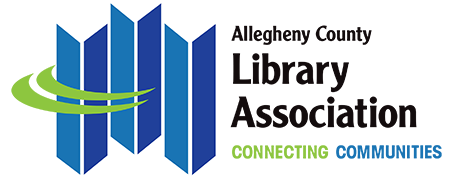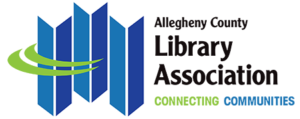
Connecting skilled individuals to board and committee opportunities in Allegheny County Libraries.
Today’s public libraries are gathering places for curious people. Library users can borrow tools or cooking equipment, enjoy live readings or music, use a computer or take a tutoring session, meditate, join a book club, or participate in a variety of classes.
It is essential that library leadership – the Board of Trustees and volunteer committees – reflect the richness and diversity of our communities. TheTalent Bank allows local libraries to identify, connect with, and engage interested and talented community members who want to contribute to their local library.
We hope that once you’ve reviewed the information below, you’ll be interested in submitting your own expression of interest.
ACLA Talent Bank Webinar (RECORDED March 10, 2021)
Marilyn Jenkins, Executive Director of ACLA, and Michael Kumer, CEO of Boards Made-to-Order, held a brief informational session that introduced some of the basic expectations of board and committee members.
View the recorded webinar by clicking the link below.
By submitting an expression of interest, your information will be sent to your local library for consideration. Your library will then reach out to discuss opportunities for board or committee service.
Several factors are taken into consideration when appointing people to any board or committee. It is important to know that completing an expression of interest does not guarantee placement. Placement decisions are made by the libraries and their municipalities, not by ACLA.
The Allegheny County Library Association (ACLA) is a federated library system of 46 public libraries delivering service in more than 70 locations throughout Allegheny County. Member libraries include the Carnegie Library of Pittsburgh (CLP), which has 19 locations, and 45 other libraries and their branches located outside the City of Pittsburgh. Each library is independent and has its own governance structure. As a consortium, county libraries share a countywide catalog; jointly offer downloadable books, audios, and videos as well as online databases; and provide a diverse calendar of programming events. Internet access and free Wi-Fi services are available at all county libraries. ACLA’s coordination expands the resources of local libraries beyond what they could accomplish individually.
Libraries across Allegheny County have varied governance structures. Most libraries operate as 501(c)(3) nonprofit organizations, with a board structure defined in the organization’s bylaws and articles of incorporation. Some libraries operate as a department of municipal government. In those cases, the boards may be advisory or governing, depending on local statute.
Library boards typically have 5-9 members as mandated by the State Code, depending on the number of municipalities the library serves. Each funding municipality appoints board members through a collaborative process with the libraries. A handful of libraries established prior to 1960 were “grandfathered” in under different board structures and may have a different process.
Library boards often have a range of subcommittees. There may be finance and audit committees, governance committees, and fundraising committees, among others. Serving on a library committee can be a wonderful way to get to know the library (and for the library to get to know you). Committee service can lead to board service as board positions become available.
Board and committee service are on a voluntary basis with no financial compensation. However, board and committee members can attest to how rewarding this service is. Libraries depend on dedicated and passionate individuals to represent their communities’ best interests.
Are you new to serving on a board? Here are the top three requirements of library board members:
- Prepare for, attend, and conscientiously participate in board meetings.
- Serve as an ambassador for the library and leverage personal connections, networks, and resources to secure the financial resources and partnerships necessary for the library to advance its mission. Board members should spread the word about the library’s great programs and services as they move about the community. Think about the people you know and the groups in which you are involved – what connections could help the library? This might be materials, program ideas, new expertise, or even funding.
- Make a personal financial contribution that is meaningful to you. Every board member should make an annual gift to set an example for the community. Very few nonprofits stipulate an exact amount or even a minimum, because every person’s financial situation is different. Foundations and other funders expect 100% giving from boards.
Expression of Interest Form
Any information provided will be used solely for the ACLA Talent Bank and will not be shared or distributed in any other way.


